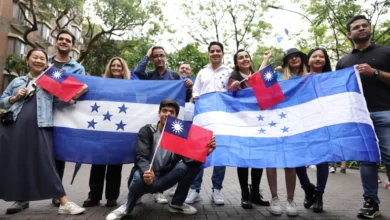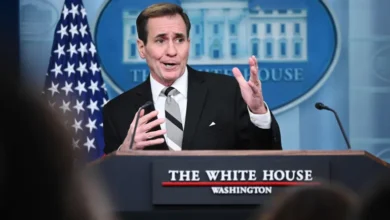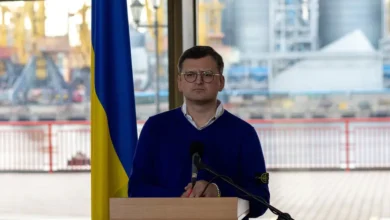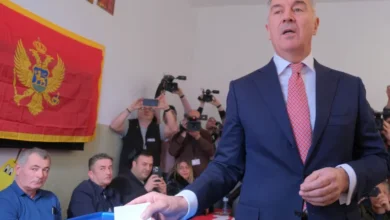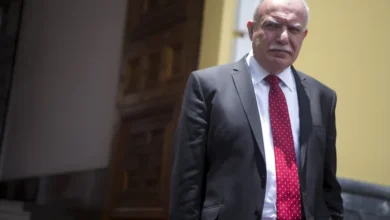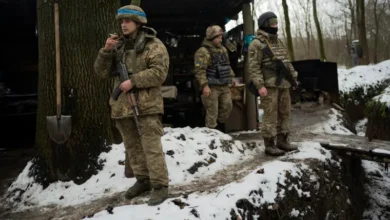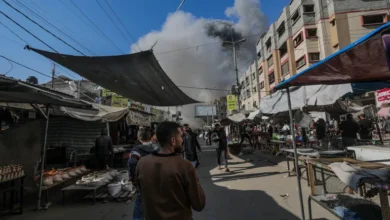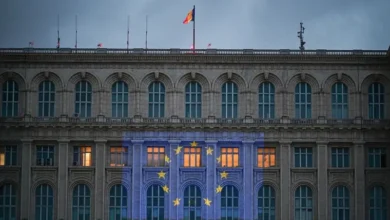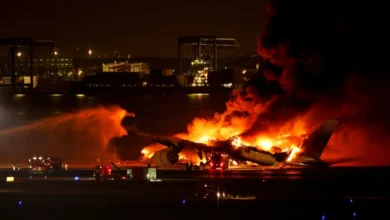What’s happening in Venezuela? Election turmoil, protests and fraud claims
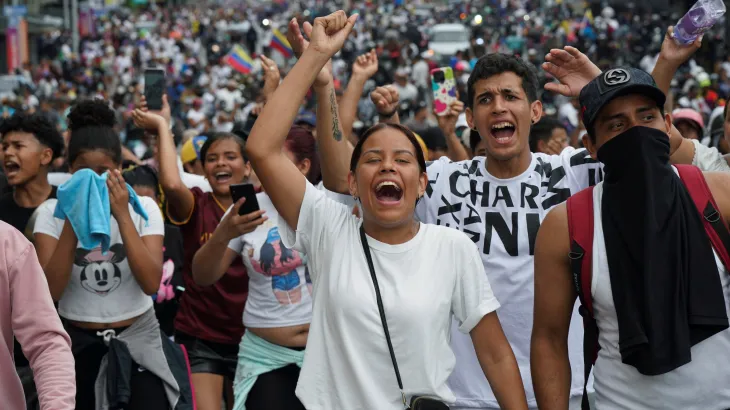
Thousands of people have taken to the streets in Venezuela to protest against what they say is President Nicolas Maduro’s fraudulent election win. Maduro, who secured a third six-year term as president, denounced an attempt “to impose a coup d’etat” in the country.
“We have witnessed a series of events, more than 100 violent terrorist attacks,” Maduro said on Monday, blaming the opposition for these attacks.
In the capital, Caracas, officers used tear gas on Monday as crowds marched down the main road, banging pots and pans. In three cities, statues of Hugo Chavez, Maduro’s mentor and predecessor, were knocked down with sledgehammers.
So what’s happening in Venezuela, and what are the protests about? Here is what we know:
What’s happening in Venezuela?
On Monday, the National Electoral Council (CNE) certified Maduro’s re-election. The opposition has accused the electoral body of being loyal to the ruling United Socialist Party of Venezuela, which has been in power for 25 years.
The vote counting was riddled with claims of irregularities. The opposition said some of its witnesses were denied access to polling stations where votes were being counted and the electoral authority had prevented more votes from being processed.
The government and the CNE reported that Maduro won with 51 percent of the vote, followed by opposition candidate Edmundo Gonzalez with 44 percent. The government also accused the opposition of trying to rig the results.
Maduro said the opposition did everything “possible to have the elections suspended”.The opposition coalition led by Maria Corina Machado disputed Maduro’s victory. On Monday, it said it obtained more than 73 percent of the tally sheets, showing more than 6 million votes for Gonzalez and 2.7 million for Maduro.
Machado said: “All the tallies were verified, digitalised and then uploaded into a strong web portal,” adding that “several global leaders are checking the portal.”
Machado and Gonzalez, a former diplomat, are part of a unified opposition movement that overcame their divisions to form a coalition known as the Democratic Unitary Platform to challenge Maduro.
How do elections work, and what are the allegations of fraud?
In Venezuela, voters use electronic machines that record their votes and provide a paper receipt showing their chosen candidate. Voters are expected to deposit these receipts into ballot boxes before leaving the polling station.
After the polls close, each machine prints a tally sheet listing the candidates and their vote counts.
The ruling party has tight control over the voting system through the CNE and a network of local party coordinators.
Venezuela’s law states that opposition party representatives should be able to witness the voting process, vote counting and, most importantly, obtain a copy of the final tally sheet from the machines.
The opposition said some witnesses were blocked from following the counts and at other sites the tallies were not printed.
Later, Machado said Gonzalez’s victory was “overwhelming” based on voting tallies provided by campaign representatives.
Until late on Monday, the CNE had not released the tallies from each of the 30,000 polling stations across Venezuela, fuelling tensions.
On Monday, Chief Prosecutor Tarek William Saab launched an investigation into Corina Machado’s alleged involvement in the hacking of the CNE’s data transmission system from North Macedonia. Saab alleged that Machado was implicated in a scheme to manipulate the voting results.
